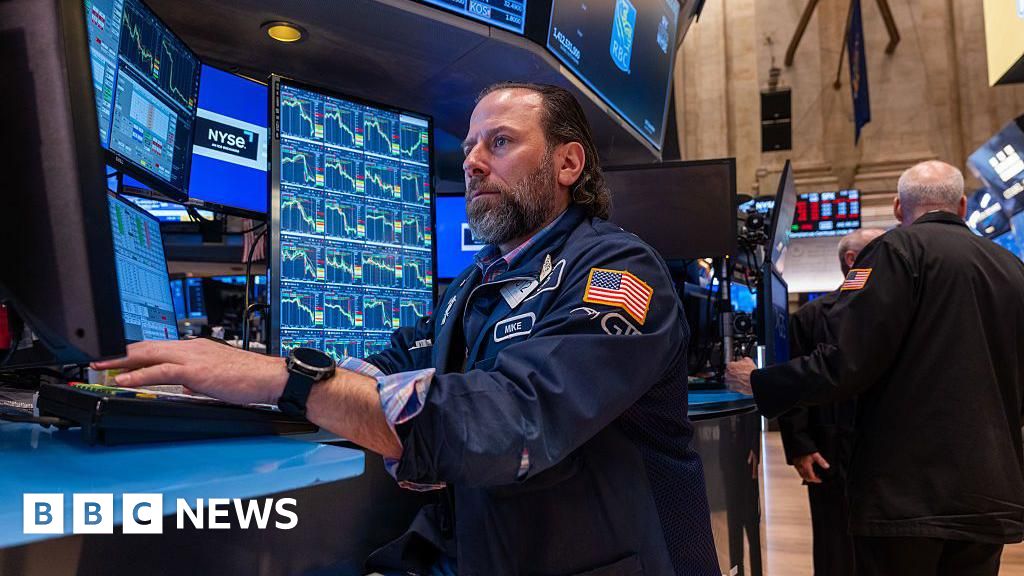
Navigating the Choppy Waters of Global Trade: A Week of Market Volatility
The past week has witnessed a significant downturn in US stock markets, marking the worst performance since the initial shock of the COVID-19 pandemic. This sharp decline isn’t isolated; it reflects a growing unease stemming from escalating trade tensions between the US and China. The situation underscores the interconnectedness of the global economy and the potentially devastating consequences of prolonged trade disputes.
The immediate trigger for this market upheaval was a retaliatory move by China in response to newly announced tariffs by the US. While specific details of these tariffs and the subsequent countermeasures remain complex and subject to ongoing negotiation, their impact on market sentiment is undeniable. Investors, already wary of economic uncertainty stemming from other factors like inflation and interest rate hikes, reacted swiftly and negatively. The fear is that this tit-for-tat escalation will spiral into a full-blown trade war, disrupting supply chains, impacting consumer prices, and ultimately hindering global economic growth.
The situation highlights a fundamental challenge in the current geopolitical landscape. The pursuit of national economic interests, often expressed through protectionist trade policies, can have significant unintended consequences. While proponents of these policies often argue that they protect domestic industries and jobs, the reality is far more nuanced. Global trade is intricate; disrupting it can lead to unforeseen ripple effects that ultimately harm not only international partners but also the domestic economy initiating the disruption.
A key point of contention often lies in the assessment of the economic health of the nations involved. Claims that a robust jobs market diminishes the impact of trade disputes often overlook the long-term consequences. A strong jobs market today doesn’t guarantee a strong jobs market tomorrow if crucial international trade relationships are severely damaged. The interconnected nature of modern economies means that a decline in one sector can trigger a domino effect, impacting employment across various industries and potentially leading to overall economic slowdown.
The uncertainty surrounding the future trajectory of these trade disputes adds further fuel to the market’s volatility. The lack of clear communication and the potential for further escalatory measures leave investors hesitant to commit capital, contributing to the downward trend. The inherent risk associated with such uncertainty is significant, and it necessitates a cautious approach from both policymakers and market participants alike.
In conclusion, the recent market downturn serves as a stark reminder of the delicate balance inherent in global trade. While national interests remain paramount, a myopic focus on protectionist measures can overlook the interconnectedness of the global economy and the potentially catastrophic consequences of trade wars. The need for dialogue, compromise, and a focus on mutually beneficial agreements is more critical now than ever before, as the repercussions of this latest escalation could have far-reaching and lasting implications. Navigating these choppy waters requires a collaborative approach that prioritizes long-term stability over short-term gains. The current situation underscores the urgency of finding a path toward sustainable and mutually beneficial trade relationships before the potential damage becomes irreversible.



Leave a Reply